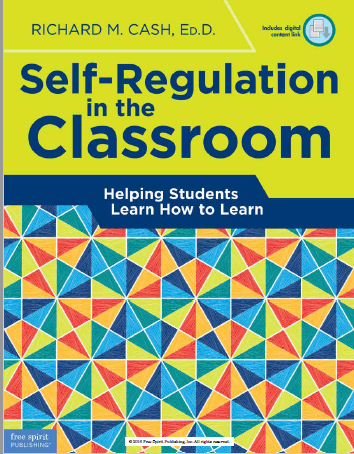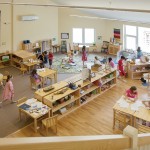The development of self-regulation is a key outcome of student participation in a Montessori environment. The furniture, materials, student access and manipulation of the environment, and the teacher herself are intentionally prepared for the child in efforts to support full potential. Along the way, self-regulation is developed. Chapter 1 of Self-Regulation for Gifted Children (Richard Cash) complemented Montessori approach, theory, and practice. Although familiar, it also held perspectives that reinforced the importance of infra-cognition in developing self-regulation for gifted children. This can require additional intentionality in the Montessori classroom.
Infra-cognition speaks to the idea of “grand thinking processes” (pg. 11). This is easily seen in Montessori classrooms as the students manipulate materials to provide a concrete expression of abstract ideas. It is also seen in interest-based research projects and presentations. The development tool that is easily overlooked for gifted students in a Montessori classroom is the use of intensive group work and Going Out activities.
Intensive group work requires students to go to more developed and complex ideas. For example, Model UN requires students to work together to understand and find solutions to intersecting real-world problems. Placing students in this type of situation will require them to stretch their communication, problem-solving, critical thinking, and self-regulation skills regardless of their ability levels. Therefore, be intentional in groupings, observations, and interventions used to support. This will require the teacher to know how and when to support students, as well as how and when to step back.
Going Outs require students to:
- identify and justify needed resources outside of the classroom or school campus
- develop a plan to access them
- execute
- bring the needed resources back to the classroom to be used for the needed purpose.
The key is that this is done with minimal to no assistance from adults. Adults provide guidance only when necessary and when off-campus, safety oversight.
In both of these situations, students must employ varying levels of self-regulation regardless of the ability level of the child. There are no prepared answers or clear-cut routes to success. Students have to use critical thinking, analysis, communication, planning, forethought, cause-effect relationships, inference skills, and so on in order to reach their goals.
As you prepare to end this 2020-2021 COVID school year, take time to reflect over the summer how you can continue to support self-regulation in gifted students.









Comments 3
Thank for your ideas and the information about this book. A few things stick out – ensuring gifted students know how to learn. How often is that overlooked when learning comes easy? Also, even considering self-regulation is important for gifted students. Too often, all that is seen is their giftedness, but nothing supports them as whole students.
Thanks for your ideas and the information about this book. A few things stick out – ensuring gifted students know how to learn. How often is that overlooked when learning comes easy? Also, even considering self-regulation is important for gifted students. Too often, all that is seen is their giftedness, but nothing supports them as whole students.
The Going Outs is really interesting as a concept/strategy related to self regulation and the gifted student. I mentored two IB students this year doing their “personal project” that they have to do as part of the program, and in their process journals, I noticed that both students took pride in being resourceful about what they needed to complete the project, and were very creative about it. It became part of the research/inquiry process. I never knew that this concept had a name– and now I do!